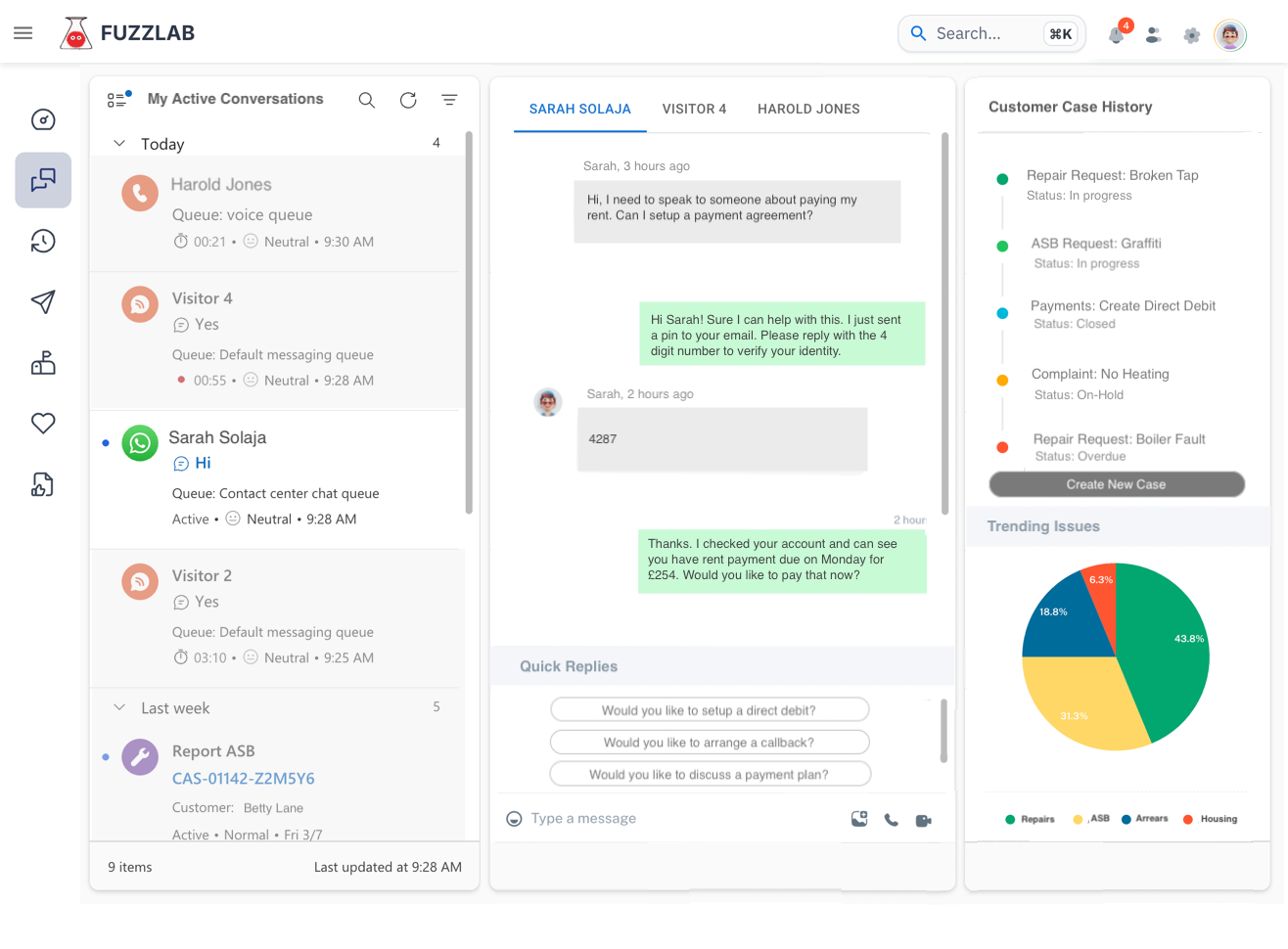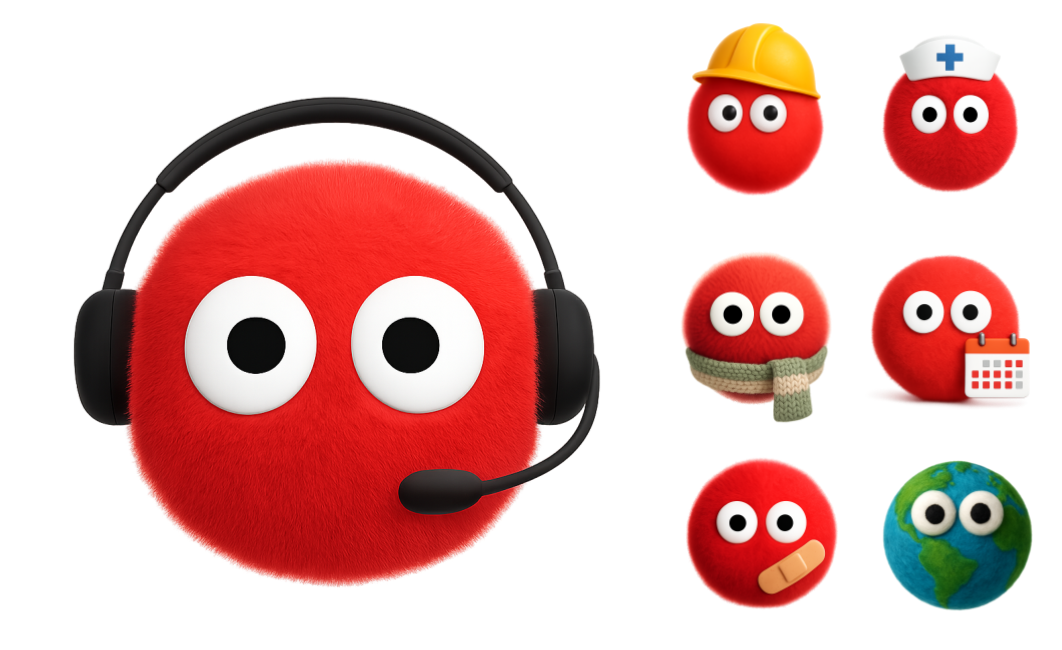AI Agents & Messaging
Improve Engagement & Increase Satisfaction
Don't leave customers feeling abandoned and on hold. Connect with them on the channels they use every day.
Fuzzlab’s AI-powered digital agents and event-driven messaging put you in control, delivering guided customer experiences that save time, drive clarity and build trust.
Make every interaction count


Listen at scale & respond instantly in any language, with AI that understands your customers, your policies & your services



Insight into every interaction
Customers
CSAT
Cost Savings
Automated Customer Service
Each Fuzzlab Agent is trained to solve a specific customer problem, work with your policies and integrate with your systems. Automate repetitive tasks with consistency and precision. Free your team to focus on complex issues and deliver personal, human service where it matters most.
- ✅ Increase capacity, in 100+ languages, without additional staffing
- ✅ Improve compliance, service SLAs and CSAT
- ✅ Provide instant customer access to accounts, services and help
- ✅ Guide customers to book services, complete forms and transact
- ✅ Save processing time on every inbound customer request

Save time now with AI Agents
Fuzzlab's AI Agents can be deployed as chatbots in minutes.

Unified contact centre with case management
Centralise every conversation in one place. Fuzzlab simplifies case handling and gives managers real-time oversight of performance and contact trends.
- ✅ Unified inbox with integrated view of case and contact history
- ✅ Unified metrics and insight across all channels
- ✅ Automated voice and chat responder, with custom agent escalation rules
- ✅ Active learning and pro-active knowledge base
- ✅ Consistent messaging and advice for customers and agents
- ✅ Keep your contact numbers, with our telephony and messaging platform
Works with your existing systems
No need to rip out and replace. Fuzzlab integrates seamlessly with your CRM, scheduling and communication tools, enabling consistent service levels across every touchpoint.
- ✅ One platform for all resident communication
- ✅ Integrated with your CRM and scheduling tools
- ✅ Secure, scalable, and fully accessible
- ✅ Automated scheduling and reminders
- ✅ Livechat, WhatsApp, voice, email & SMS support
- ✅ Case logging, knowledge bases, and escalation workflows
How It Works
Connect
Bring all your channels into one place — voice, WhatsApp, webchat, SMS, Teams, and more. Our platform plugs straight into your CRM and existing systems.
Automate
Deploy AI chatbots and workflow agents to answer common questions, guide customers, and route queries to the right team automatically.
Engage
Give your agents a single, unified view of the customer, complete with history, context, and AI-powered suggestions. Customers get faster, more consistent responses.
Measure & Improve
Track every interaction. See what’s working, where time is saved, and how satisfaction improves. Use insights to continuously adapt and optimise.
See Fuzzlab in action
Discover how our automation tools and unified contact centre can transform your customer service.
Frequently Asked Questions
Do I need a CRM or other information management system to use Fuzzlab?
Fuzzlab can be deployed with or without a CRM. If you have one, we can integrate. If you don’t, we can still help you automate and unify your communication channels.
Can customers use WhatsApp or SMS to contact us?
Yes. Fuzzlab supports WhatsApp, SMS, voice, email and web chat out of the box. Residents can contact you however works best for them.
Is Fuzzlab secure and compliant for public sector?
Absolutely. Fuzzlab follows ISO 27001 best practices, offers UK-hosted options, and supports GDPR-compliant data handling throughout.
How quickly can we get started?
You can launch your first AI assistant and digital channels, like WhatsApp, within days. A full contact centre takes a little longer, with implementation starting at 6 weeks.
Why are you called Fuzzlab?
One of our founding objectives was to give customers a warm, fuzzy feeling. It’s a symbol of great customer service and reflects our mission to make public services less intimidating and more accessible.